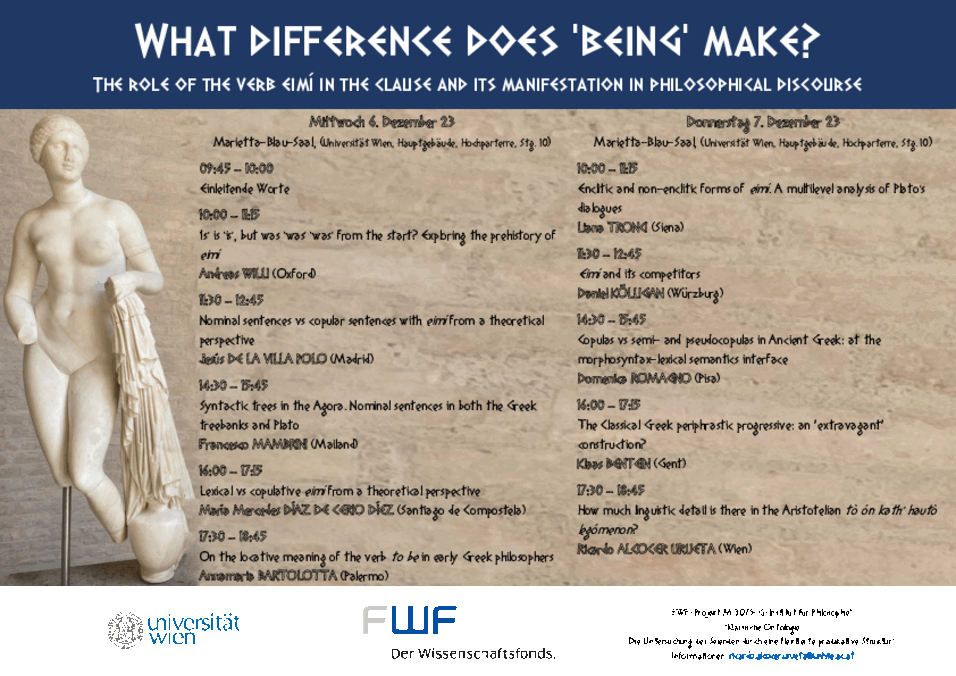We are pleased to invite you to the in-person colloquium What difference does 'being' make?
(December 6 and 7, 2023,Marietta-Blau-Saal, University of Vienna, Main Building).
What difference does being make?
The role of the verb εἰμί in the clause and its manifestation in philosophical discourse
Historians of ancient Greek philosophy often lack the necessary knowledge to understand the strange expressions of the philosophers they study. Moreover, ancient Greek philosophers sometimes use such expressions as technical terms, as is the case with those that contain the verb εἰμί ‘am’ (≈ to be).
Following philosophers like Frege and Russell, historians of ancient philosophy usually approach the semantics of “being” from a logical point of view, showing more interest in the logical operations behind εἰμί-sentences than in the function of the verb εἰμί within the clause. If one surveys the philosophical literature, one will find countless mentions of the ‘is’ of “existence”, the ‘is’ of “predication”, or the ‘is’ of “identity”, but hardly any mention of the difference between lexical verbs and auxiliary verbs ― and copulas are auxiliaries for predication.
To compensate for these deficiencies, we have set out to bring together nine distinguished experts in Ancient Greek to hear what they have to say about the verb εἰμί and its role in the clause. The idea is to learn from them so that we do not overlook important linguistic matters when we approach ancient Greek philosophy. For we must not forget that Greek philosophers coined both logical and ontological terms in natural language, that is, in Ancient Greek.

